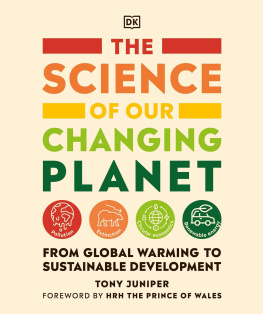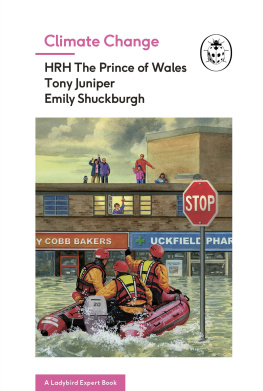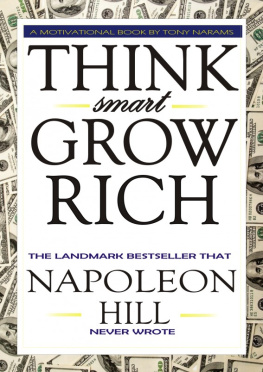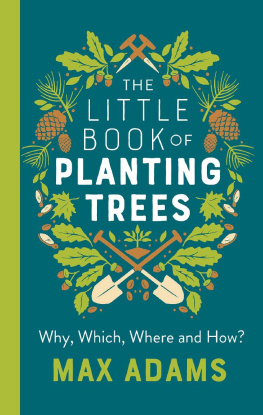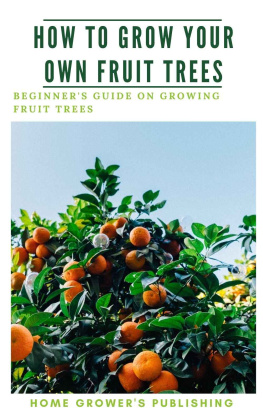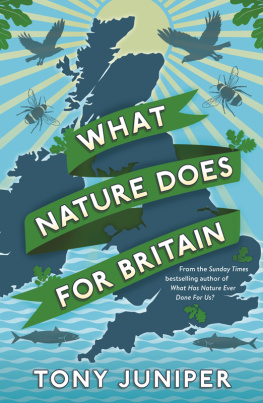Tony Juniper - What Has Nature Ever Done for Us?: How Money Really Does Grow On Trees
Here you can read online Tony Juniper - What Has Nature Ever Done for Us?: How Money Really Does Grow On Trees full text of the book (entire story) in english for free. Download pdf and epub, get meaning, cover and reviews about this ebook. publisher: Profile Books Ltd, genre: Romance novel. Description of the work, (preface) as well as reviews are available. Best literature library LitArk.com created for fans of good reading and offers a wide selection of genres:
Romance novel
Science fiction
Adventure
Detective
Science
History
Home and family
Prose
Art
Politics
Computer
Non-fiction
Religion
Business
Children
Humor
Choose a favorite category and find really read worthwhile books. Enjoy immersion in the world of imagination, feel the emotions of the characters or learn something new for yourself, make an fascinating discovery.

- Book:What Has Nature Ever Done for Us?: How Money Really Does Grow On Trees
- Author:
- Publisher:Profile Books Ltd
- Genre:
- Rating:5 / 5
- Favourites:Add to favourites
- Your mark:
- 100
- 1
- 2
- 3
- 4
- 5
What Has Nature Ever Done for Us?: How Money Really Does Grow On Trees: summary, description and annotation
We offer to read an annotation, description, summary or preface (depends on what the author of the book "What Has Nature Ever Done for Us?: How Money Really Does Grow On Trees" wrote himself). If you haven't found the necessary information about the book — write in the comments, we will try to find it.
Tony Juniper: author's other books
Who wrote What Has Nature Ever Done for Us?: How Money Really Does Grow On Trees? Find out the surname, the name of the author of the book and a list of all author's works by series.
What Has Nature Ever Done for Us?: How Money Really Does Grow On Trees — read online for free the complete book (whole text) full work
Below is the text of the book, divided by pages. System saving the place of the last page read, allows you to conveniently read the book "What Has Nature Ever Done for Us?: How Money Really Does Grow On Trees" online for free, without having to search again every time where you left off. Put a bookmark, and you can go to the page where you finished reading at any time.
Font size:
Interval:
Bookmark:
What Has Nature Ever Done For Us? is a brilliant resume of natures new deal: nurture me and Ill nurture you. Nick Crane, author and TV presenter
Juniper explains how the welfare of the human species rests on the assets and services provided by the rest of nature, and makes the case for natural capital to be integral in a new economy fit for the future. Michael Clarke, Chief Executive, RSBP
Tony Juniper takes us on a highly readable, personal journey of discovery of nature and our reliance upon it. What Has Nature Ever Done For Us? provides the stories and the numbers to convince others that investing in natures balance sheet is good for the corporate balance sheet. Jose Lopez, Nestl
This book should be on the essential reading list at schools. Without understanding the essence of life and this is a fantastically modern romp through it how can our children be expected to make the right decisions? If we ever needed a book to remind us that we are part of nature, not separate from it, this is it. Stephanie Hilborne OBE, Chief Executive, The Wildlife Trusts
Tony Juniper is Britains best known environmental campaigner, and a former director of Friends of the Earth. He is the author of several books including Saving Planet Earth, which accompanied the BBC TV series, and Spixs Macaw.
First published in the UK in January 2013 by
Profile Books
3A Exmouth House
Pine Street, Exmouth Market
London, EC1R OJH
Typeset in Bembo, THE Sans and Crete Round to a design by Henry Iles.
What Has Nature Ever Done for Us? Tony Juniper, 2013
Foreword HRH The Prince of Wales, 2013
The moral right of the author has been asserted.
All rights reserved. No part of this book may be reproduced in any form without permission from the publisher except for the quotation of brief passages in reviews.
10 9 8 7 6 5 4 3 2 1
PHOTO CREDITS
Guyana waterfall Jeremy Holden/Flora & Fauna International.
Printed in the UK by CPI Bookmarque, Croydon, CR0 4TD,
on Forest Stewardship Council (mixed sources) certified paper.
A catalogue record for this book is available from the British Library.
ISBN 978 1 84668 560 6
eISBN 978 1 84765 942 2

How money really does grow on trees
Tony Juniper
Foreword by
HRH The Prince of Wales

What Has Nature Ever Done for Us?

One of the gravest misconceptions of the modern age, and one which has concerned me for more years than I care to remember, is the presumption that Nature can be taken for granted and her needs ignored. There are some who seem to think that only when times are good should we afford the cost of nurturing the natural environment, as if it is some kind of adjunct to the leisure industry. There are plenty more, I am afraid, who see the process of protecting natural systems as the sort of cost that should be avoided altogether, simply because it actively interferes with development, job creation and economic growth.
This prevailing attitude could not be further from the truth. Nature is, in fact, the source and very basis of our welfare and economic prosperity. For me, this is so self-evident as to seem ridiculous even to say it, but as the decisions taken in the real world continue to contradict this essential fact of life and as the worlds economic powerhouses desperately look for ways to rebuild so many faltering economies, this book proves very timely indeed. Not least because, as those countries struggle to meet the enormous economic challenges they face, the biggest one of all remains largely hidden from view.
As you will discover in this book, the services and countless benefits to the human economy that come from Nature have an estimated value every year of around double the global Gross Domestic Product, and yet this colossal contribution to human well-being is hardly ever mentioned when countries consider how to create future growth. As I have long been trying to point out, this situation cannot remain the case for very much longer. We are reaching a critical turning point when humankind has to realise that people and the human economy are both embedded within Natures systems and benevolence. We have to understand the implication behind this fact that, because our prosperity is so utterly reliant upon Nature, to survive on this planet we are going to have to forge a substantially different relationship with the Earths essential life-support systems.
To some extent, this awareness is slowly starting to gain ground in the mainstream of our collective thinking. In part, this is the result of recent scientific studies and discoveries which are being translated into many inspiring examples of practical action. Our dependence on Nature is also slowly being reflected more confidently in those economic policies which enable people to achieve a better balance between keeping Natures systems intact and creating economic development that results in more jobs. But if we are to deepen this commitment to Natures needs, it is paramount that we adopt a different mind-set; one that veers away from the focus that has dominated the past half century or so. Essentially, we have to become far more joined-up in our thinking and behaviour.
For example, the so-called Green Revolution which began in agriculture during the 1960s and quickly enabled global food production to expand and keep pace with the accelerating growth in population has also, among other things, caused the dangerous depletion of freshwater around the world, made a huge contribution to climate change, caused a massive loss of biodiversity and damaged soils worldwide. Biodiversity is absolutely crucial. You cannot simplify Natures system and expect it to carry on operating in the way it did before. There is nothing in Natures elaborate system which is not necessary, so to take one participant out of the dance leads to the dance breaking down and, sooner or later, this will have a serious impact on the state of human health. This is why these costs have to be taken into account if we are to see what we do in its proper context, and then an approach to food production that avoids these disastrous side effects has to take its place, otherwise we are lost. It is far too easy to believe what we see at first glance that is, that there are huge economic benefits if we use modern farming techniques and that no alternative which does not have efficiency and profit as its priorities can possibly replace it. But if we stand back, the picture quickly looks a lot less positive. In fact, it looks frighteningly bleak because the predominant approach is effectively cannibalising its own future by degrading the natural systems it absolutely depends upon.
The same picture emerges if you look at the way we regard the economic benefits derived from destroying the worlds tropical rain-forests. The soils and minerals that lie beneath the forest and the timber that comes from the trees certainly all have tremendous market values, but what about the huge role they play in soaking up the vast quantities of carbon dioxide produced by power stations, factories, cars and planes, or the role they play in sustaining the cycle that produces billions of gallons of fresh water every day? About a third of the carbon dioxide annually released by people is dealt with by these forests. It is a natural service which has recently been calculated to be worth literally trillions of dollars. And remember, they are rain forests. Take the forests out of the equation and you very quickly affect how much rain falls from the skies which, of course, has very serious implications for our ability to generate power and produce food. So, you see, while we argue about the pros and cons of erecting wind turbines or producing more hybrid cars or using energy efficient light bulbs, all the time the Earths life belt of equatorial rainforests are doing at least part of the job for us, and effectively doing it all for nothing. And yet, despite an increasingly clear body of scientific evidence that shows that this is the case, we continue to ignore the fact and take a very short-sided, fragmented view of the benefits these forests offer us. We actually conclude that they are worth more to us dead than they are alive! This is an insane example of the kind of short-termism that dominates the present economic world view which, by definition, is obviously not going to help us succeed as a species in the long term. Sooner rather than later the wheels will start to fall off.
Next pageFont size:
Interval:
Bookmark:
Similar books «What Has Nature Ever Done for Us?: How Money Really Does Grow On Trees»
Look at similar books to What Has Nature Ever Done for Us?: How Money Really Does Grow On Trees. We have selected literature similar in name and meaning in the hope of providing readers with more options to find new, interesting, not yet read works.
Discussion, reviews of the book What Has Nature Ever Done for Us?: How Money Really Does Grow On Trees and just readers' own opinions. Leave your comments, write what you think about the work, its meaning or the main characters. Specify what exactly you liked and what you didn't like, and why you think so.

